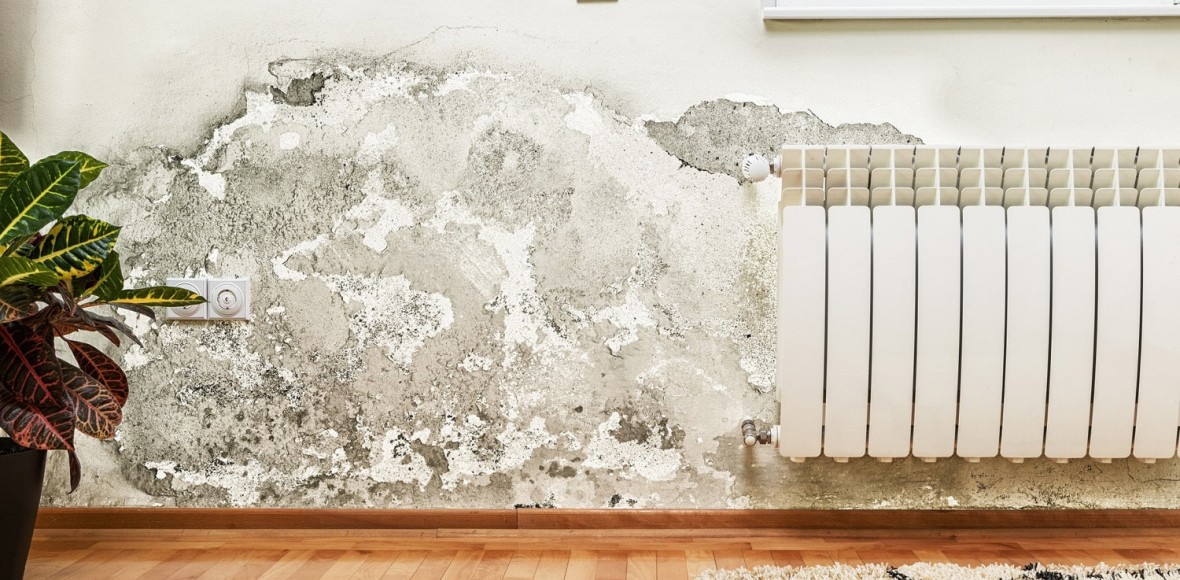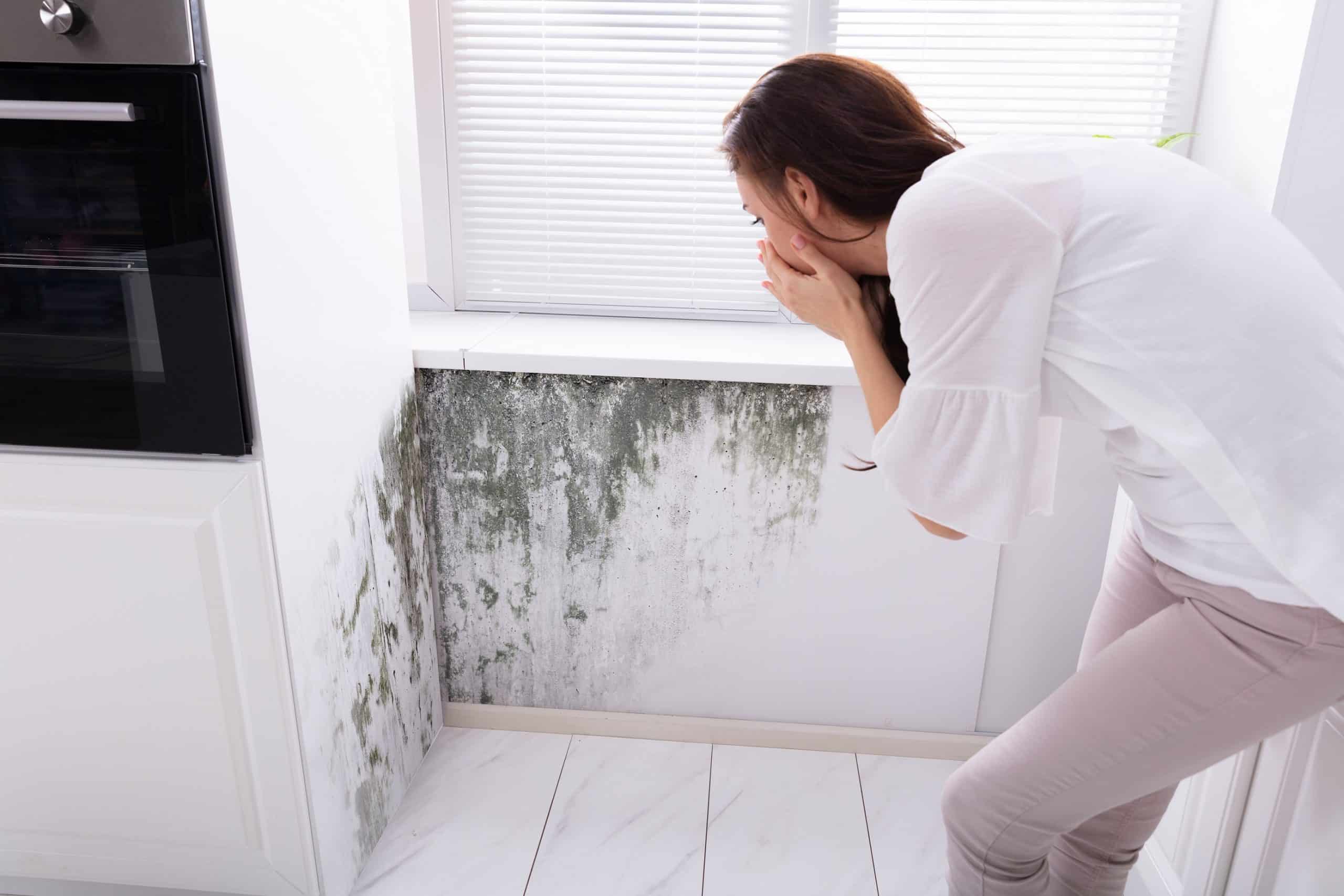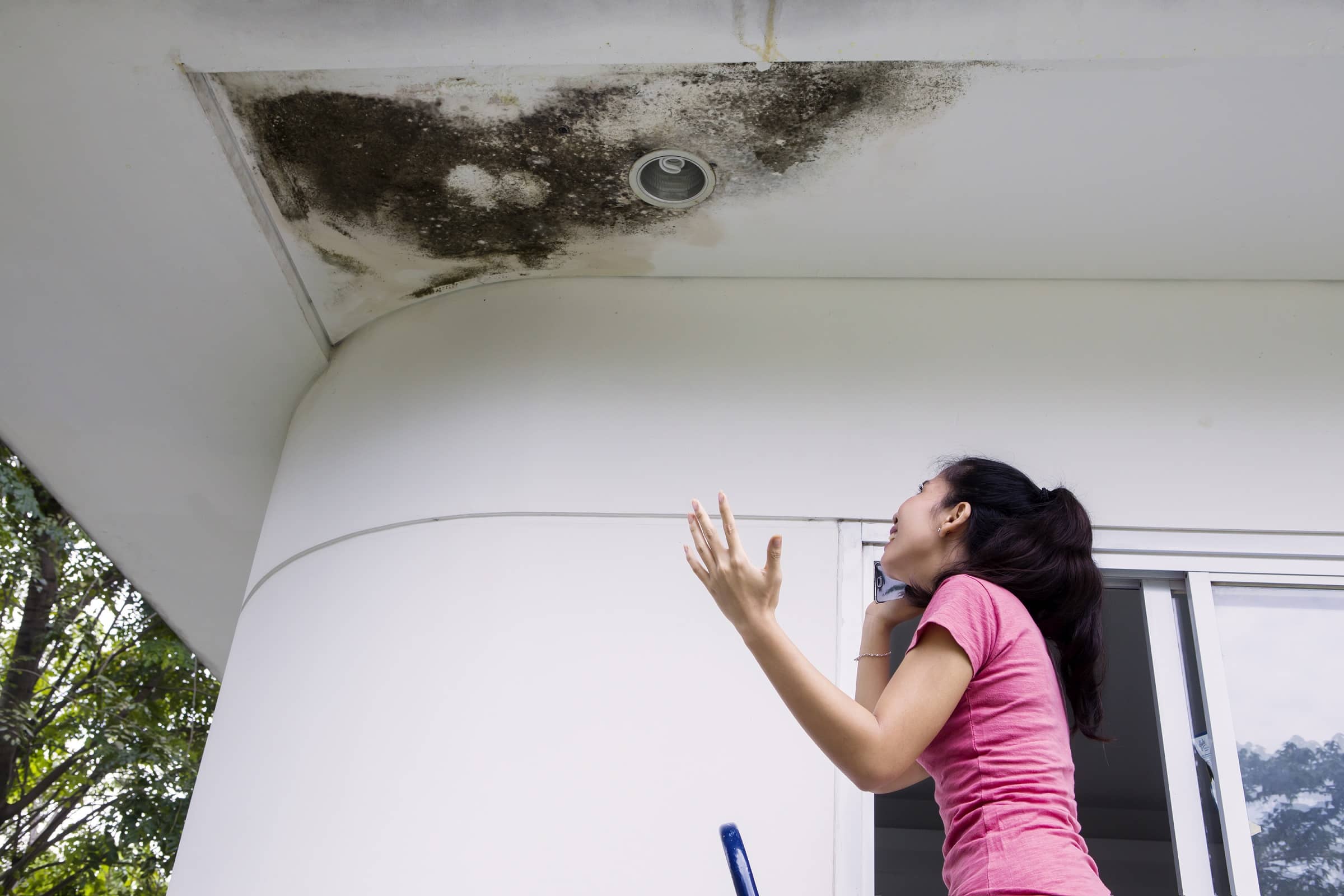
There are a myriad of problems that can arise around your home, and mold is one of the most troublesome ones.
If your home has recently suffered water damage, whether from a burst water heater or flooding, it’s crucial that testing for mold is part of your restoration process. And speaking of the restoration process, you probably want to know what checking for and getting rid of mold is going to cost you.
Many homeowners may be unaware that water damage from a natural disaster is actually not covered under a standard home insurance policy, but what about mold?
Does homeowners insurance cover mold? If not, who pays for mold remediation? Read on as we discuss.
Briefly, let’s discuss what mold is and how you can detect and prevent it.
Mold is a fungus that will grow anywhere there is excess moisture. Around your house, the most common mold you’ll find is the black stuff you see in your bathroom or along window sills.
If you’ve recently had flooding in your home due to an appliance or weather event, the excess water could lead to mold growth in your carpets, drapes, and more.
You’ll know when you have mold in your home because you can smell its distinct, musty smell. For some people, mold does not have serious health consequences, but for many, a mold infestation can cause breathing issues and exacerbate health issues like asthma, allergies, and other breathing problems.

If you suspect you have mold in your home, there are a few things you should do. You should first seek medical treatment if you or your fellow household members have had lingering symptoms that won’t go away.
Once your personal health is taken care of, it’s time to start treating the mold itself. It’s best to use restoration professionals to test for mold and check the type. Not only do the professionals have more experience and knowledge on the subject, but they also have protective gear to keep them safe.
Homeowners can treat smaller mold growths on their own, and a professional mold inspector can tell you whether your problem will need additional treatment.
Another thing a professional restoration service can do is detect the cause of the mold. This is crucial in both preventing future mold growth and dealing with your homeowner’s insurance.

Now for the big question. Once you’ve determined the cause of the mold growth in your home, it’s time to contact your insurance. Whether or not your insurance will cover mold damage depends entirely on the cause of the mold.
Most standard home insurance policies will cover mold treatment if the mold growth has been caused by an accident within the home. This would include situations like a pipe bursting, an overflowing toilet, or your washing machine leaking. Water damage from a firefighter’s hose is also covered.
If mold grows due to flood waters in your home, your standard homeowner’s insurance will not cover that. Instead, a supplemental flood damage policy would be needed.
Furthermore, if your mold growth was caused by a burst water heater, your insurance will only cover the mold restoration work—it will not cover repairing or replacing the water heater. For that, you would need a home warranty policy.
Another instance when your homeowner’s insurance does not cover mold damage is if your negligence is determined to be a factor. For example, if you knew about a roof leak but neglected to make any repairs, and those pipes caused a mold infestation, your insurance likely will deny your claim.
The best way to prevent mold in your home is to avoid moisture in the air as much as possible.
Use dehumidifiers, fans, and air conditioning in rooms that are prone to dampness, regularly clean your bathroom, and check for leaks on your appliances.
You can also remove the carpet in rooms that are prone to dampness, so mold has fewer places to grow.
Being alert to what can cause mold and working quickly to remediate it are the best things you can do when it comes to mold damage.
Any number of disasters can wreak havoc on your home, and water damage is one of the biggest ones. Not only can water permanently wreck many of your belongings, but it also brings with it many lingering after-effects.
Mold is the number one concern for homeowners after water damage. If you suspect you may have a mold infestation, give Axel Works a call right away.
We are your number one Orlando mold removal and remediation service, and we’ll get your house back to being the home you love in no time.
Leave a Reply